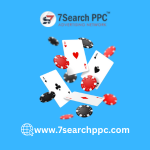In the competitive world of e-commerce, driving traffic and converting it into sales is essential. Pay-per-click (PPC) advertising has emerged as one of the most effective tools for achieving this. PPC for e-commerce sites allows businesses to attract highly targeted traffic, increase brand visibility, and ultimately maximize their return on investment (ROI).
This comprehensive guide explores how PPC can transform your e-commerce marketing efforts, delves into the role of an e-commerce advertising company, and highlights essential strategies for success.
What is PPC for E-Commerce Sites?
PPC, or Pay-Per-Click advertising, is a digital marketing model where advertisers pay a fee each time their ad is clicked. For e-commerce sites, PPC campaigns are typically displayed on search engines, social media platforms, or e-commerce-specific advertising networks. These campaigns are designed to drive targeted traffic to product pages or landing pages.
Key Benefits of PPC for E-Commerce Sites
Immediate Results: Unlike SEO, PPC delivers instant visibility on search engines and other platforms.
Highly Targeted Traffic: PPC allows precise targeting based on keywords, demographics, and behaviors.
Scalability: Campaigns can be scaled up or down depending on performance and budget.
Measurable ROI: Detailed analytics make it easy to track performance and ROI.
Setting Up a PPC Campaign for E-Commerce
Define Clear Objectives
Before launching a PPC campaign, establish clear objectives. Are you aiming to increase sales, drive traffic, or promote a specific product? Defining these goals will guide your strategy.
Keyword Research
Keyword research is the foundation of a successful PPC campaign. Focus on:
High-intent keywords like “Buy [Product Name]” or “[Product Name] Deals.”
Supporting keywords such as "e-commerce marketing" and "e-commerce PPC services."
Select the Right Platforms
Choose platforms based on your target audience. Popular options include:
Google Ads: Ideal for search intent-driven purchases.
Facebook and Instagram Ads: Great for showcasing products visually.
Amazon Ads: Perfect for businesses selling on Amazon.
Craft Compelling Ads
Your ad copy and visuals should grab attention and entice clicks. Include:
A strong call-to-action (CTA).
High-quality product images or videos.
Clear benefits of your product.
Optimize Landing Pages
Ensure that your landing pages:
Align with the ad’s message.
Are mobile-friendly and fast-loading.
Include clear CTAs and user-friendly navigation.
Advanced Strategies to Maximize ROI
Leverage Retargeting
Retargeting ads target users who have previously visited your site but didn’t convert. This keeps your brand top-of-mind and encourages them to return.
Use Shopping Ads
Shopping ads display product images, prices, and reviews directly on search engine results pages (SERPs). These ads are particularly effective for e-commerce.
Partner with an E-Commerce PPC Agency
If managing campaigns feels overwhelming, partnering with an experienced e-commerce PPC agency can be a game-changer. They bring expertise, tools, and resources to optimize your campaigns effectively.
Analyze and Optimize Regularly
Regular analysis is key to maintaining high ROI. Use tools like Google Analytics and platform-specific dashboards to:
Monitor click-through rates (CTR), conversion rates, and cost-per-click (CPC).
Identify underperforming keywords and ads.
Adjust bids and budgets as needed.
Experiment with A/B Testing
Test different ad copies, visuals, and CTAs to identify what resonates best with your audience. Continuous testing can significantly enhance your campaign’s performance.
The Role of E-Commerce Advertising Companies
An e-commerce advertising company specializes in creating and managing PPC campaigns tailored to online retailers. These companies offer:
Strategic Planning: They help identify the most profitable keywords and platforms.
Creative Services: Crafting engaging ads that drive clicks.
Campaign Management: Monitoring and optimizing campaigns for peak performance.
Performance Analytics: Providing detailed insights to measure success.
Collaborating with an experienced e-commerce advertising company ensures your campaigns are data-driven and goal-oriented.
Tools and Solutions for E-Commerce PPC
Using the right tools can make managing PPC campaigns more efficient. Here are some must-haves:
Google Ads and Microsoft Ads: For running search and shopping ads.
Social Media Ad Platforms: For targeted campaigns on Facebook, Instagram, and Pinterest.
E-Commerce Solutions: Platforms like Shopify and BigCommerce often integrate PPC tools.
Analytics Tools: Google Analytics and SEMrush provide detailed performance insights.
Conclusion
PPC for e-commerce sites is a powerful tool to drive targeted traffic, increase sales, and maximize ROI. Businesses can achieve sustainable growth in a competitive market by leveraging strategies like retargeting, shopping ads, and professional e-commerce PPC services. Whether you manage campaigns in-house or collaborate with an e-commerce advertising company, staying proactive and data-driven is the key to long-term success.





Comments